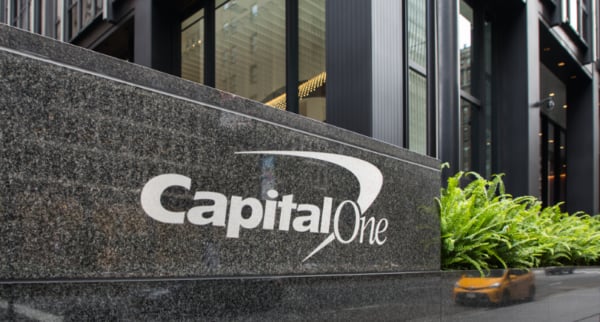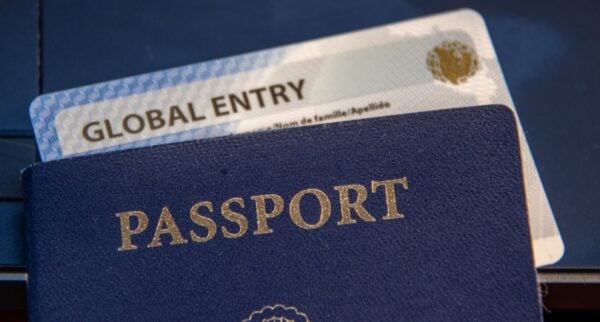Merrick Bank Secured Credit Card Review
This credit card allows you to choose your own credit line based on how much you put down for your security deposit. With responsible use, this secured credit card could help build or rebuild your credit score quickly and easily.
Merrick Bank Secured Credit Card
- Rewards
- points_per_dollar
- Regular APR
- reg_apr,reg_apr_type
- Annual Fee
- annual_fees
Key Features
descriptionEditor Analysis:
- A solid secured card for helping you build or rebuild your credit.
- You can increase your credit limit by increasing your security deposit, up to $3,000.
- While not low, per se, the ongoing APR with this card is lower than for many other secured cards. Still, it's always going to be best to pay off your balance in full each statement cycle.
- There isn't a rewards program with this card, which isn't unusual for a secured card. That said, there are those out there that offer one, so if that's important to you, consider a different secured card instead.
Blue Cash Preferred® Card from American Express
discontinued_disclaimerMerrick Bank Secured Credit Card BENEFITS
There is no "cookie-cutter" approach when it comes to determining if you want to apply for and obtain a credit card and if so, which one best suits your needs. It’s a personal decision and with so many different types of cards on the market, it’s certainly not a matter of "one-size-fits-all." Every consumer is in a different financial situation with different needs and priorities. Before making any decisions, you’ll want to sit down and do a gut-level, honest assessment of your particular circumstances.
To be sure, the process can seem a bit intimidating, especially if you’re going through it for the first time. However, rest assured that taking a measured, thoughtful approach to the process will be worth the time and effort. The right card can benefit you, both financially and with peace of mind for your monthly budgeting, as well as helping you learn fiscal responsibility. In fact, some cards have helpful budgeting tools as a perk. As for long-term benefits, using a credit card responsibly can help you build your credit rating with the three major credit agencies. This will be extremely important when you want make bigger purchases, such as a home or a car.
But building credit from scratch takes time and getting started can be tough since getting approved for new loans or credit cards often requires you to have already had one. It’s a Catch-22, really: Must have credit to get credit. But that’s where a secured card like the Merrick Bank Secured Credit Card can come to the rescue. Secured cards are designed for people who are looking to build their credit, so, with responsible use, you may find yourself eligible for a traditional, unsecured card down the road.
WHAT IS THE Merrick Bank Secured Credit Card SECURITY DEPOSIT?
When it comes to obtaining a credit, some consumers, particularly those new to credit or who have stubmled with their credit in the past, will find the biggest stumbling block they face is that poor credit or no credit all. For these consumers, a secured credit card such as the Merrick Bank Secured Credit Card can be the right fit. They provide an excellent way for you to build a credit history or, if need be, repair credit that is less than pristine.
In simplest terms, a secured credit card requires that you make a deposit of a certain amount in a holding account. It’s a way for the card’s issuing bank to guarantee they’ll be able to recoup the balance should you just stop paying your bill. That security deposit generally determines your credit limit. In the case of the Merrick Bank Secured Credit Card, you can make your initial deposit of anywhere from a minimum of $200 to a maximum of $3,000. For your convenience and flexibility, your initial deposit is not set in stone. For example, even if you make an initial deposit of $500, you can add to your deposit amount at any time, thus increasingly your credit limit up to that maximum of $3,000. In addition, if you show you are using your card responsibly, Merrick Bank could choose to increase your credit limit beyond the amount of your security deposit.
Assuming your account remains in good standing and fully paid off, you’ll receive the full amount of the security deposit back when you close the account.
Merrick Bank Secured Credit Card FEES
The Merrick Bank Secured Credit Card has numerous positive features to offer, but it’s not without its potential downsides. At the forefront are fees, which aren’t unusual for a secured card, but should still be taken under consideration. The card charges an annual fee: AnnualFees. Again, that’s not unusual, but don’t be surprised when that fee hits your account immediately upon the account being opened.
The Merrick Bank Secured Credit Card also charges a foreign_fee fee on all transactions charged in foreign currency. This can add up if you do quite a bit of travelling outside the country or shopping online with foreign merchants. It’s certainly not a deal-breaker, but you’ll probably want to leave it at home the next time you travel abroad.
You will want to make sure you pay your monthly statement on time, as you could face late fees if you don’t. Speaking of making payments, the APR is RegAPR. While this is about average among similar cards, it can still add up quickly. If you’re looking to improve your credit and your overall financial standing, paying off your balance on time and in full each month are is an excellent goal to aim for.
HOW DOES THIS CARD COMPARE TO SIMILAR CARDS?
Merrick Bank Secured Credit Card vs. Merrick Bank Double Your Line® Secured Credit Card
discontinued
These sibling cards have much more in common then they have differences. The interest rates and annual fees are identical, as are the fees charged for foreign transactions and late payments. You can be approved for each card with either poor credit or very little credit history.
So what is the difference? That would be the deposit. As mentioned above, Merrick Bank Secured requires a security deposit of between $200 and $3,000 and if you start with a lower amount, you can choose to increase your deposit later, up to the maximum of $3,000. With Merrick Bank Double Your Line Secured, you deposit a flat $200. That’s it. That is your initial credit limit. However, if you pay your statements on time for seven months straight, Merrick Bank will increase your credit limit to $400 without you having to increase your deposit.
The decision here likely comes down to your hopes for your security deposit and credit limit; that is, if you’re willing to work with the $200 initial line of credit and then take advantage of the "double your line" offer with the Double Your Line card or whether you’d prefer to adjust your line of credit yourself by increasing your security deposit.
Merrick Bank Secured Credit Card vs. Capital One Platinum Secured Credit Card
discontinued
Capital One Platinum Secured Credit Card is something of a hybrid. It’s called a "partially secured card," which means that you will need to make a security deposit but your initial credit limit could be higher. Specifically, with the Capital One Platinum Secured Credit Card, depending on your creditworthiness, you could be required to make a deposit of either $49, $99 or $200 in order to establish an at least $200 initial credit limit. This can provide you with a little more fiscal flexibility if you qualify for one of the lower deposit amounts.
Merrick Bank Secured Credit Card, on the other hand, bases your credit limit entirely on your deposit (at first) but it can be as high as $3,000.
Both cards offer cardholders the chance to have their credit limit increased if they make on-time payments and show they have been using their card responsibly.
Another difference between the cards is that Capital One Platinum Secured has a $0 annual fee. While this might appear to make Capital One Platinum Secured an easy choice, you might want to look deeper. The Merrick Bank Secured charges an annual fee, its interest rate is significantly lower than the RegAPR APR charged by Capital One Platinum Secured. Obviously, you can avoid the interest charges altogether – and help your bottom line overall – by paying off your statement balance in full each cycle.
Merrick Bank Secured Credit Card vs. Citi® Secured Mastercard®
discontinued
Citi® Secured Mastercard® operates in very much the same way as the Merrick Bank Secured, though there are some key differences that might influence your decision (Citi is a CardRatings advertiser). Both cards require a minimum security deposit of $200 and both allow you to add to your deposit. Citi Secured as a maximum security deposit of $2,500, slightly lower than Merrick Bank Secured’s maximum of $3,000.
To its advantage, Citi® Secured Mastercard® has a $0 annual fee, but a slightly higher foreign transaction fee of foreign_fee.
The biggest potential drawback with Citi card is the length of time it takes for you to be considered worthy of an unsecured card. It can take up to 18 months. That’s significantly longer than other carts of its type.
IS Merrick Bank Secured Credit Card A GOOD CARD?
Merrick Bank Secured Credit Card is a simple, no-nonsense, secured credit card which can definitely help a person improve their credit score and built positive credit if used properly. There are no bells and whistles with this card. No rewards program. No introductory offer, but there is the opportunity to access a credit card and all the security and convenience that brings as well as to raise your credit score with responsible use.
Disclaimer:The information in this article is believed to be accurate as of the date it was written. Please keep in mind that credit card offers change frequently. Therefore, we cannot guarantee the accuracy of the information in this article. Reasonable efforts are made to maintain accurate information. See the online credit card application for full terms and conditions on offers and rewards. Please verify all terms and conditions of any credit card prior to applying.
This content is not provided by any company mentioned in this article. Any opinions, analyses, reviews or recommendations expressed here are those of the author’s alone, and have not been reviewed, approved or otherwise endorsed by any such company. CardRatings.com does not review every company or every offer available on the market.










